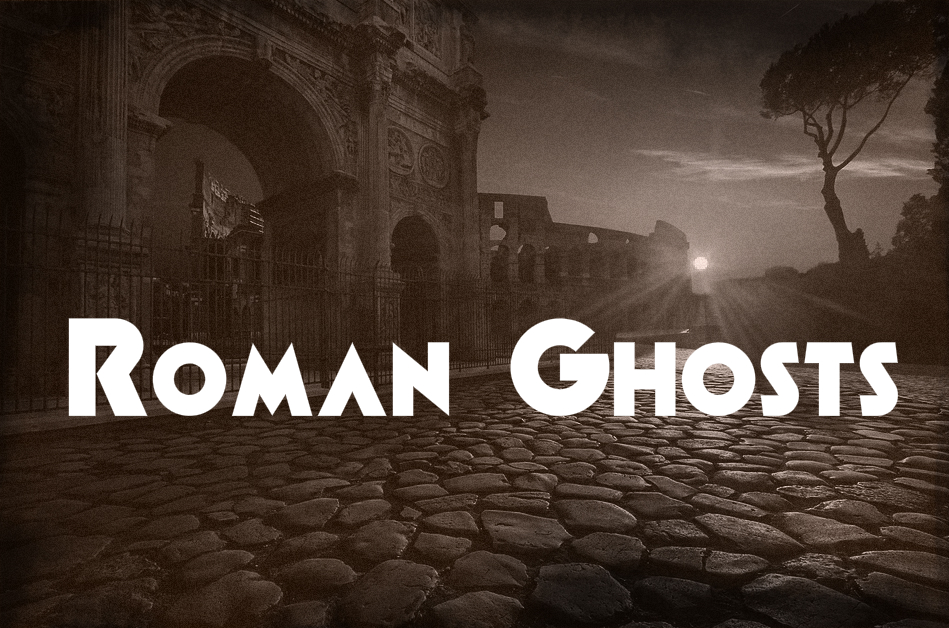
Hello History-Lovers!
It’s been a while since the last post in the Roman Ghosts blog series. Something I was working on recently (a secret to be unleashed this autumn!) made me think of hauntings, and so, here we are.
I’ve also waited because, of all the tips we’ve received about Roman ghost sightings, there were none that took place outside of the UK. The Roman Empire was, of course, vast, and so I found it difficult to believe that there were no accounts outside of Britannia.
So, I did some digging and found one story which I will share with you today.
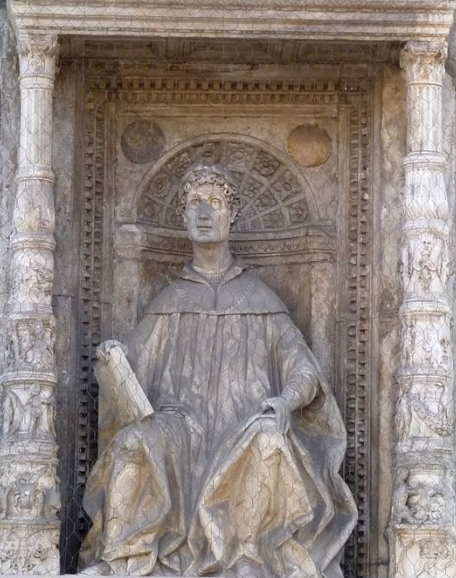
Statue of Pliny the Younger on the Duomo of Como – Giovanni Rodari, 1480 (Wikimedia Commons)
I am extremely desirous therefore to know whether you believe in the existence of ghosts, and that they have a real form, and are sorts of divinities, or only the visionary impressions of a terrified imagination. (Pliny the Younger, LXXXIII. To Sura)
As it happens, this particular story is not of modern sightings of a ghost, but rather is an ancient ghost story relayed by none other than Pliny the Younger in a letter to Senator Lucius Licinius Sura, from Hispania.
It seems that Gaius Plinius Caecilius Secundus, known to us as Pliny the Younger (c. A.D. 61 – 113), had ghosts on his mind.
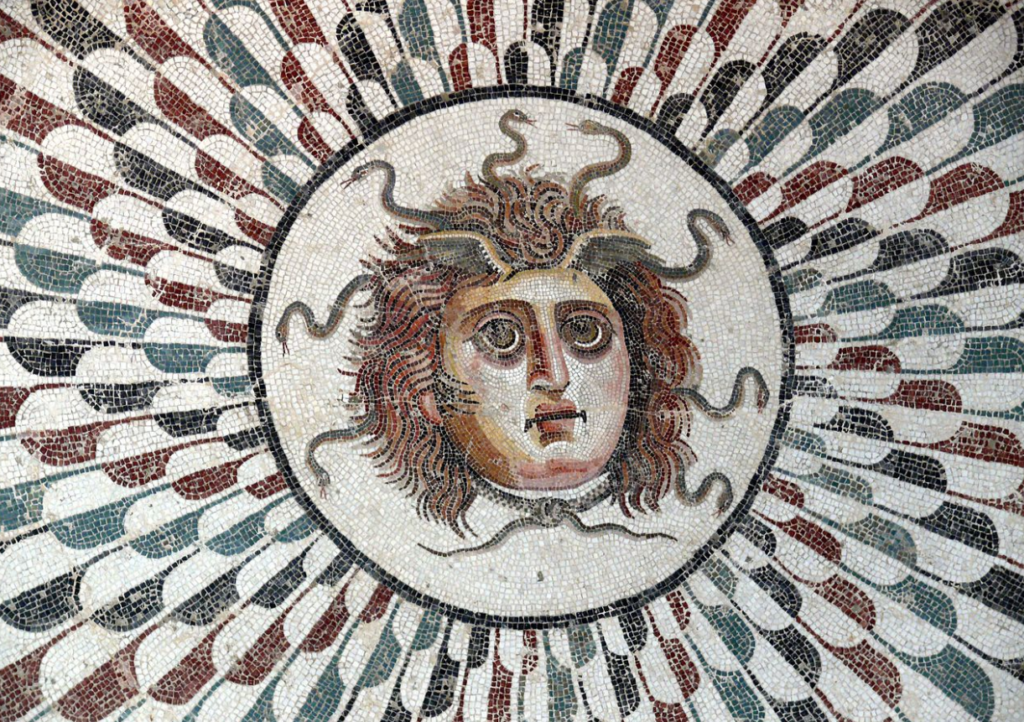
Mosaic of Gorgon head, symbol of horror and dread, from Sousse Tunisia
Being an educated and inquisitive person like his uncle, Pliny the Elder, he wrote to his friend Sura to see what he thought about ghosts.
Now, we don’t really know why Pliny the Younger had ghosts on his mind, apart from the tales he relays as examples in his letter to Sura.
There are three tales, or examples, of ghost sightings that Pliny relays in his letter. The first is of an apparition that warned the senator, Curtius Rufus, of his rise to power, and also of his death in Africa.
The second story Pliny writes to Sura about is of the Greek philosopher, Athenodorus, who wanted to rent an apartment in Athens but wondered why it was so inexpensive. Apparently, the ghost of an old man kept harassing the occupants of the flat, and so, like an ancient world Ghostbuster, Athenodorus spent the night there to see what happened. The ghost appeared while Athenodorus was working, and insisted that the philosopher follow it to a spot nearby. The next day, Athenodorus asked that a hole be dug there and, sure enough, a putrefied body lay chained within. The remains were reburied with the proper rituals, and the ghost was not seen again.
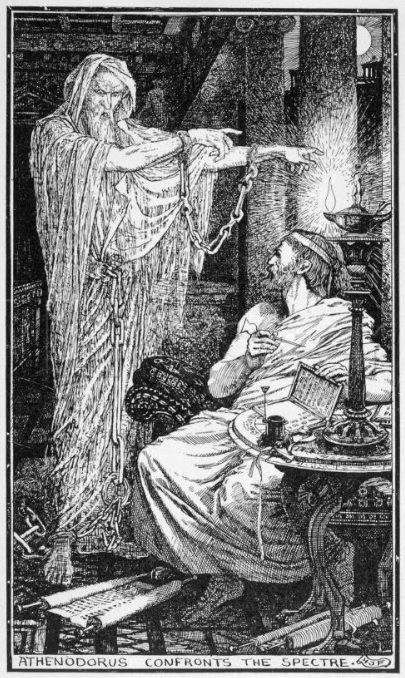
Print of Athenodorus confronting the ghost in the story told by Pliny to Sura
These first two stories in Pliny’s letter are fascinating, but it is the third story that interests me, because it comes perhaps to the crux of the matter for Pliny – an experience beneath his own roof! Here it is in his words:
I have a freedman named Marcus, who is by no means illiterate. One night, as he and his younger brother were lying together, he fancied he saw somebody upon his bed, who took out a pair of scissors, and cut off the hair from the top part of his own head, and in the morning, it appeared his hair was actually cut, and the clippings lay scattered about the floor. A short time after this, an event of a similar nature contributed to give credit to the former story. A young lad of my family was sleeping in his apartment with the rest of his companions, when two persons clad in white came in, as he says, through the windows, cut off his hair as he lay, and then returned the same way they entered. The next morning it was found that this boy had been served just as the other, and there was the hair again, spread about the room. (Pliny the Younger, LXXXIII. To Sura)
I don’t know about you, but if I woke up to a Roman ghost cutting my hair, I would not be quiet about it!
Obviously, Pliny did not witness the ghost himself, but he does say that “This story I believe upon the credit of others [the previous tale]; what I am going to mention [the current tale], I give you upon my own.”
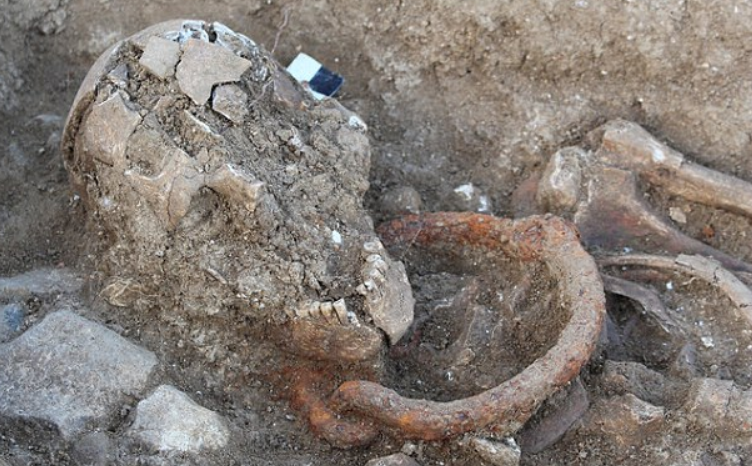
Roman burial with shackled skeleton
What would drive Pliny the Younger – an educated and well-respected man and member of Roman society – to believe this tale and even to seek the advice of Senator Sura?
Of course we don’t know what topics of discussion passed previously between Pliny and Sura, what they might have discussed over dinner in times gone by.
We should bear in mind that Pliny, who was eighteen at the time, bore witness to the eruption of Mount Vesuvius, and the deaths of thousands, including his own uncle.
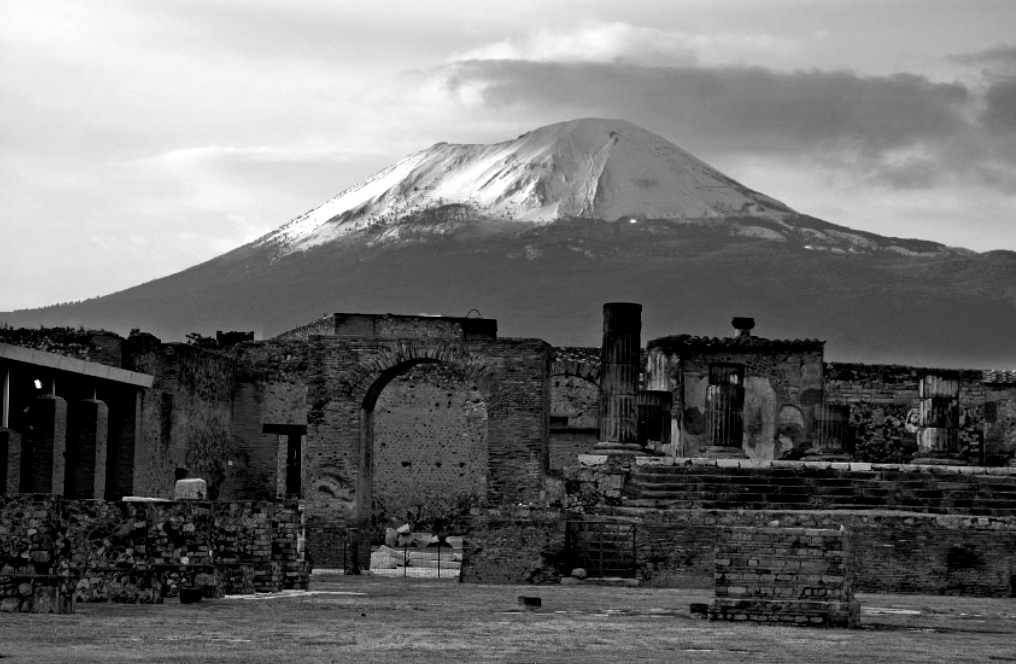
The ruins of Pompeii with Mount Vesuvius in the background
You could hear the shrieks of women, the wailing of infants, and the shouting of men; some were calling their parents, others their children or their wives, trying to recognize them by their voices. People bewailed their own fate or that of their relatives, and there were some who prayed for death in their terror of dying. Many besought the aid of the gods, but still more imagined there were no gods left, and that the universe was plunged into eternal darkness for evermore. (Pliny the Younger, Letter to Tacitus)
Years later, were the ghosts of Pompeii on his mind? Was Pliny haunted by that event, and did he worry about the dead? Perhaps his questions to Sura masked his own fears of the dead? Maybe he felt a great guilt at surviving the cataclysm of Pompeii?
Your guess is as good as mine.
One thing does seem certain from Pliny’s letter to Sura: the respectable Roman was beset by ghosts, or thoughts of them. Why, we can’t be sure, but it is a great Roman Ghost story!
If you would like to read the full text of Pliny the Younger’s letter to Sura, you can do so by CLICKING HERE.
Thank you for reading.





Thanks for yet another fascinating article, Adam. What I find most interesting is the fact that it is only in Britain that we hear of Roman ghosts. I wonder why? Are we more ‘sensitive’ or more imaginative?
Glad you liked it, Lindsay 🙂 It’s true there are many more ghost stories in Britain when it comes to spectral Romans. I certainly would have thought to find more related to Pompeii! I forget where I read it but someone thought that it might be less-accepted, from a religious stand-point, in Catholic countries like Italy. Perhaps more taboo to talk about ghosts so openly? I think it might also be a remnant of Celtic belief in Britain as well that makes it ‘easier’ to acknowledge. Either way, it’s a fascinating topic! Thank you for your comment and Happy October!